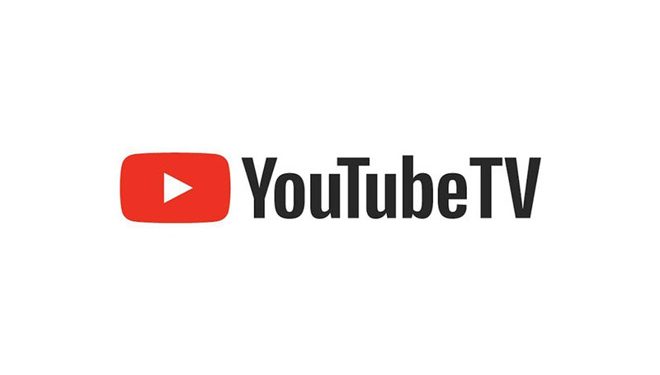The TV streaming service last week told customers that from next month it will no longer accept payments through Apple in-app purchases.
The iPhone maker takes a 30 per cent cut of any purchases made through the more than 2m apps available on its store for the first 12 months, falling to 15 per cent after that.
The fees, which are an important source of revenue for Apple’s expanding services division, have sparked outrage among app publishers who have branded them the ‘Apple tax’.
Netflix and Spotify have both stopped accepting payments via the App Store. Spotify last year filed a complaint to the European Commission, arguing that Apple’s practice of taking fees was anti-competitive. Apple Music — Spotify’s main rival — is not subject to the charges.
The TV streaming service last week told customers that from next month it will no longer accept payments through Apple in-app purchases.
The iPhone maker takes a 30 per cent cut of any purchases made through the more than 2m apps available on its store for the first 12 months, falling to 15 per cent after that.
The fees, which are an important source of revenue for Apple’s expanding services division, have sparked outrage among app publishers who have branded them the ‘Apple tax’.
Netflix and Spotify have both stopped accepting payments via the App Store. Spotify last year filed a complaint to the European Commission, arguing that Apple’s practice of taking fees was anti-competitive. Apple Music — Spotify’s main rival — is not subject to the charges.
The TV streaming service last week told customers that from next month it will no longer accept payments through Apple in-app purchases.
The iPhone maker takes a 30 per cent cut of any purchases made through the more than 2m apps available on its store for the first 12 months, falling to 15 per cent after that.
The fees, which are an important source of revenue for Apple’s expanding services division, have sparked outrage among app publishers who have branded them the ‘Apple tax’.
Netflix and Spotify have both stopped accepting payments via the App Store. Spotify last year filed a complaint to the European Commission, arguing that Apple’s practice of taking fees was anti-competitive. Apple Music — Spotify’s main rival — is not subject to the charges.
The TV streaming service last week told customers that from next month it will no longer accept payments through Apple in-app purchases.
The iPhone maker takes a 30 per cent cut of any purchases made through the more than 2m apps available on its store for the first 12 months, falling to 15 per cent after that.
The fees, which are an important source of revenue for Apple’s expanding services division, have sparked outrage among app publishers who have branded them the ‘Apple tax’.
Netflix and Spotify have both stopped accepting payments via the App Store. Spotify last year filed a complaint to the European Commission, arguing that Apple’s practice of taking fees was anti-competitive. Apple Music — Spotify’s main rival — is not subject to the charges.
The TV streaming service last week told customers that from next month it will no longer accept payments through Apple in-app purchases.
The iPhone maker takes a 30 per cent cut of any purchases made through the more than 2m apps available on its store for the first 12 months, falling to 15 per cent after that.
The fees, which are an important source of revenue for Apple’s expanding services division, have sparked outrage among app publishers who have branded them the ‘Apple tax’.
Netflix and Spotify have both stopped accepting payments via the App Store. Spotify last year filed a complaint to the European Commission, arguing that Apple’s practice of taking fees was anti-competitive. Apple Music — Spotify’s main rival — is not subject to the charges.
The TV streaming service last week told customers that from next month it will no longer accept payments through Apple in-app purchases.
The iPhone maker takes a 30 per cent cut of any purchases made through the more than 2m apps available on its store for the first 12 months, falling to 15 per cent after that.
The fees, which are an important source of revenue for Apple’s expanding services division, have sparked outrage among app publishers who have branded them the ‘Apple tax’.
Netflix and Spotify have both stopped accepting payments via the App Store. Spotify last year filed a complaint to the European Commission, arguing that Apple’s practice of taking fees was anti-competitive. Apple Music — Spotify’s main rival — is not subject to the charges.
The TV streaming service last week told customers that from next month it will no longer accept payments through Apple in-app purchases.
The iPhone maker takes a 30 per cent cut of any purchases made through the more than 2m apps available on its store for the first 12 months, falling to 15 per cent after that.
The fees, which are an important source of revenue for Apple’s expanding services division, have sparked outrage among app publishers who have branded them the ‘Apple tax’.
Netflix and Spotify have both stopped accepting payments via the App Store. Spotify last year filed a complaint to the European Commission, arguing that Apple’s practice of taking fees was anti-competitive. Apple Music — Spotify’s main rival — is not subject to the charges.
The TV streaming service last week told customers that from next month it will no longer accept payments through Apple in-app purchases.
The iPhone maker takes a 30 per cent cut of any purchases made through the more than 2m apps available on its store for the first 12 months, falling to 15 per cent after that.
The fees, which are an important source of revenue for Apple’s expanding services division, have sparked outrage among app publishers who have branded them the ‘Apple tax’.
Netflix and Spotify have both stopped accepting payments via the App Store. Spotify last year filed a complaint to the European Commission, arguing that Apple’s practice of taking fees was anti-competitive. Apple Music — Spotify’s main rival — is not subject to the charges.














